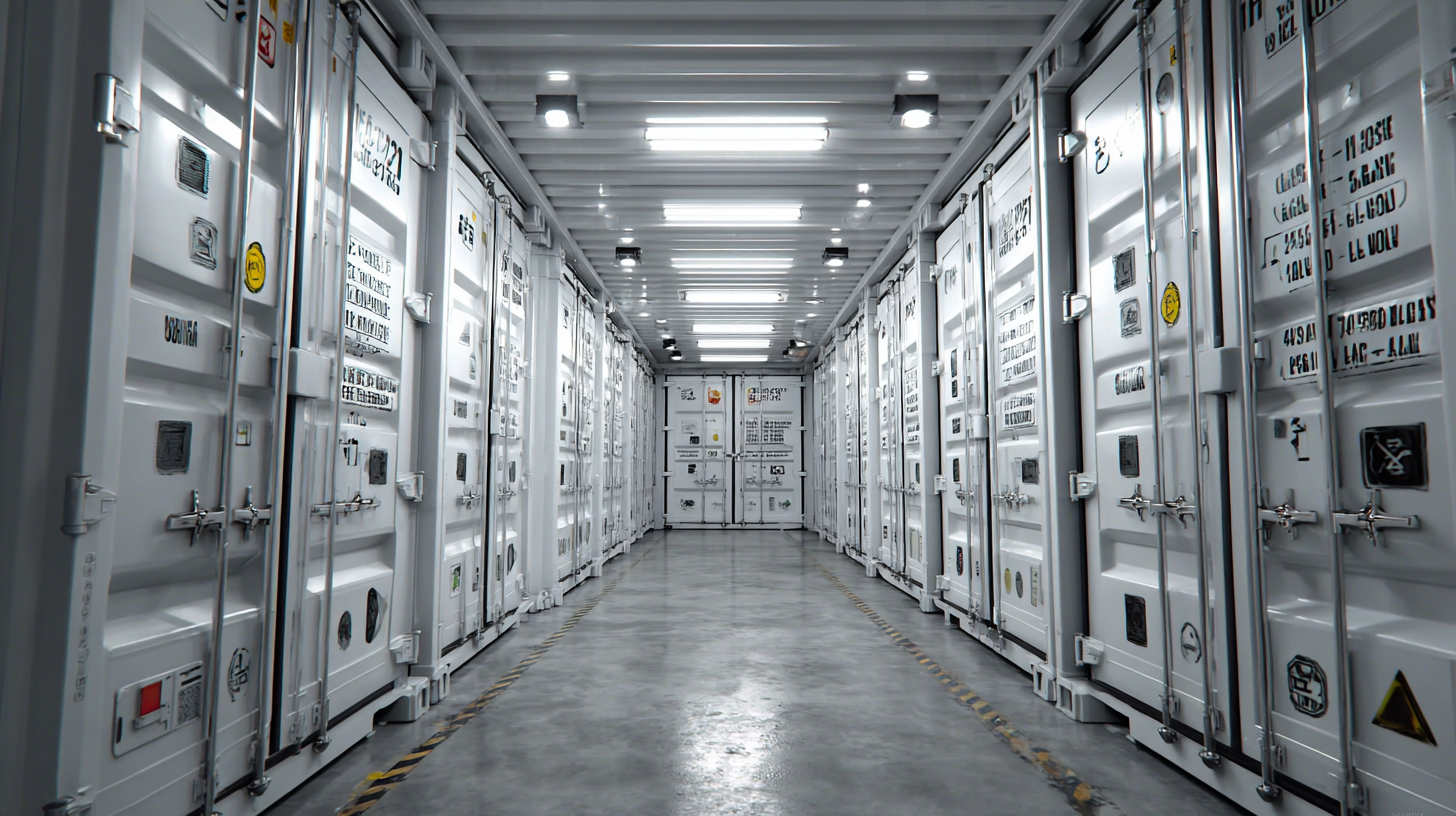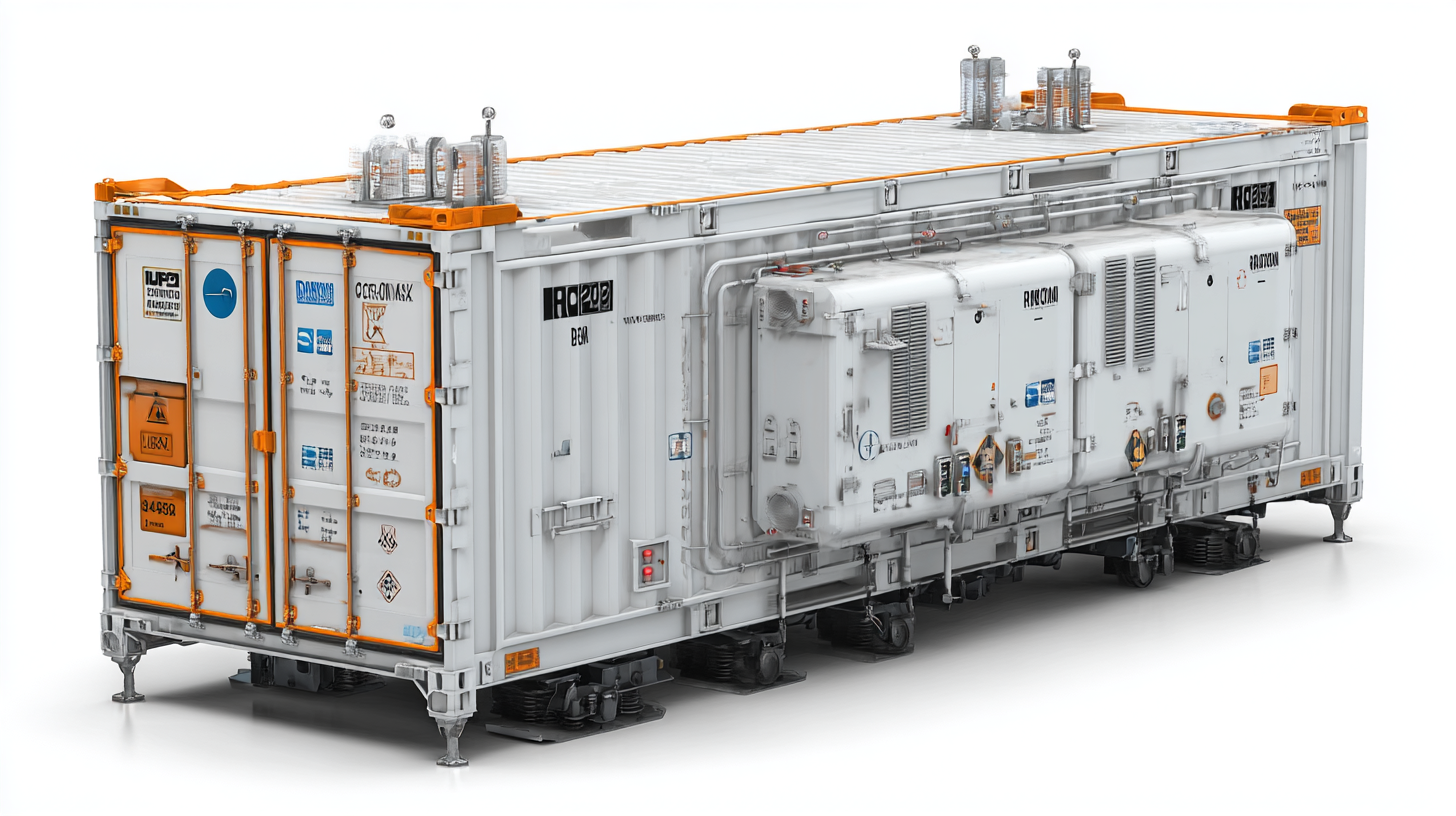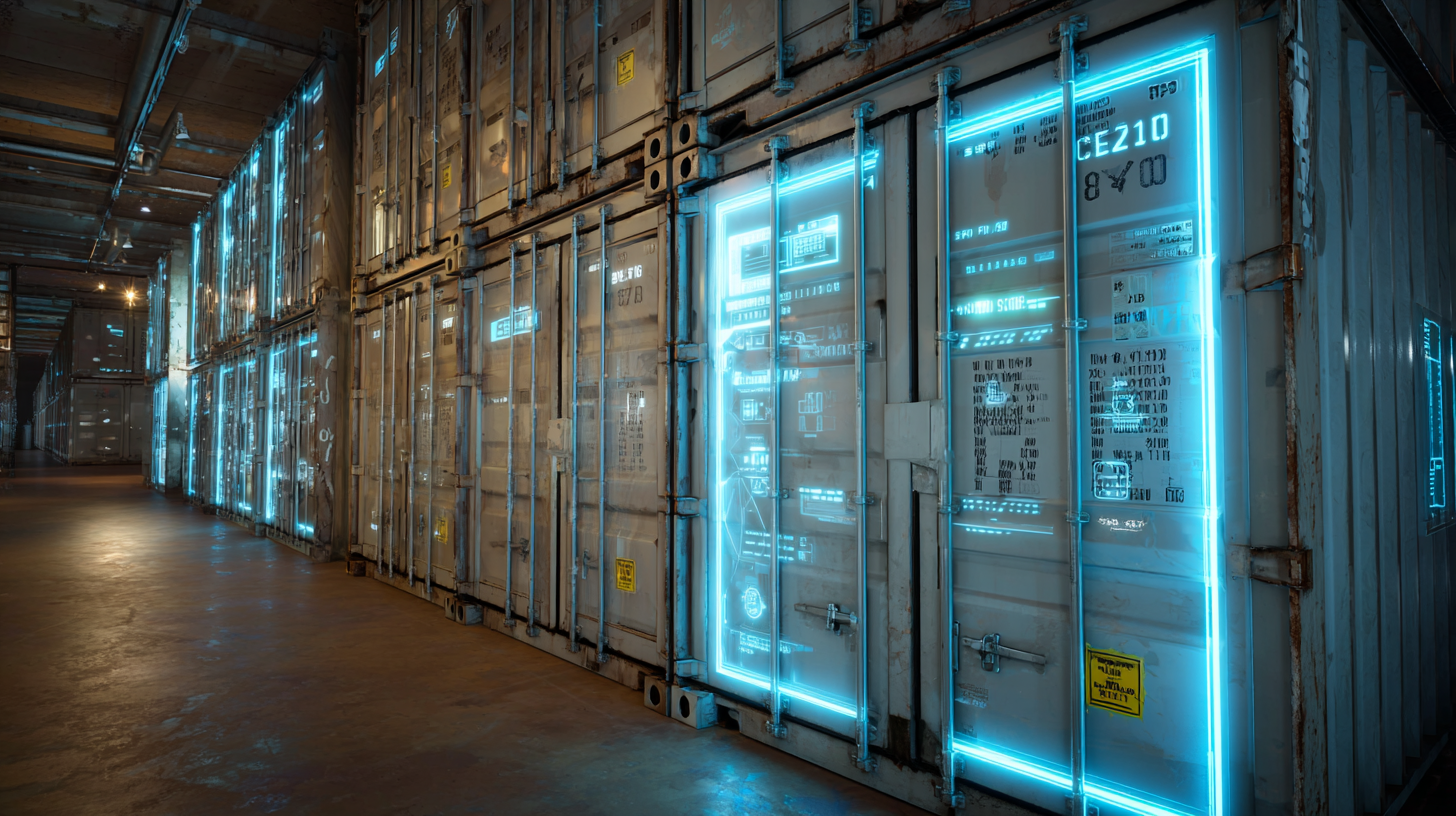As the logistics and supply chain industry evolves, Cargo Storage Containers have emerged as a critical component in enhancing efficiency and reliability in transportation. According to a recent report from MarketsandMarkets, the global market for container shipping is expected to reach $30 billion by 2025, driven by the rising demand for sustainable and technologically advanced storage solutions. Innovations in design and materials are increasingly influencing the development of optimal cargo storage containers, making them more versatile and eco-friendly. With China's manufacturing capabilities expanding to meet global needs, the notion of "卓越制造,源自中国,服务全球" resonates firmly in these advancements. In this blog, we will explore the 2025 technology trends shaping the landscape of cargo storage containers and examine how these developments can propel businesses towards greater operational excellence.

The landscape of logistics is rapidly evolving, driven by innovative cargo storage technologies that are reshaping how goods are transported and stored. According to a recent report by Allied Market Research, the global smart logistics market is projected to reach $89.5 billion by 2027, showcasing a compound annual growth rate (CAGR) of 15.4%. This growth highlights the increasing adoption of technologies such as IoT and AI, which enhance tracking and inventory management, ultimately improving cargo storage solutions.

One of the most promising advancements in cargo storage is the use of automated storage and retrieval systems (AS/RS). These systems can increase storage density by up to 60% while reducing labor costs by 50%, as indicated by a study from the Warehousing Education and Research Council (WERC). The integration of these advanced systems not only optimizes space but also minimizes human error, ensuring a smoother logistics operation. As we look towards 2025, the incorporation of blockchain technology for transparent supply chain management will further transform cargo storage solutions, offering real-time visibility and security that the industry demands.
The shipping industry is witnessing a revolutionary shift with the introduction of advanced container solutions that optimize cargo storage. In 2025, we can expect to see innovative technologies such as IoT-enabled containers that provide real-time tracking and monitoring of goods. These smart containers can send alerts regarding temperature fluctuations or impacts during transit, enhancing the safety and integrity of cargo. Companies like Maersk are already implementing these technologies, allowing for better inventory management and reducing losses due to spoilage or damage.
Moreover, the use of modular container designs is becoming increasingly popular, enabling more efficient stacking and storage in shipping vessels. This not only maximizes space on board but also simplifies loading and unloading processes at ports. Real-world applications of these solutions are evident in eco-friendly initiatives where companies utilize lightweight materials and energy-efficient designs to cut emissions. The shift towards resource-efficient container solutions not only meets regulatory requirements but also appeals to environmentally conscious consumers, showcasing how 2025 technology trends can lead to sustainable practices in the shipping industry.
The logistics industry is on the brink of a technological revolution, significantly influenced by the advent of smart container designs aimed at optimizing cargo space utilization. The integration of digital twin technologies and artificial intelligence (AI) into logistics has begun to reshape traditional practices. Despite these innovations not being widely adopted yet, the foundational technologies are readily available. According to recent market reports, the generative AI sector within logistics is projected to exceed $864.3 million by 2023, with an impressive compound annual growth rate of over 33.2% expected between 2024 and 2032, driven by increased warehouse management demands.

New initiatives are underway in regions like the Middle East, where major retail groups are reengineering their logistics operations. A notable example is the construction of a massive logistics center in Dubai, covering 265,000 square meters and capable of processing 2.2 million packages. Similarly, Singapore is leading the way in port automation by leveraging intelligent technologies and energy efficiency, which are integral to optimizing cargo space in container operations. The use of IoT technology in multimodal transport further enhances the efficiency of container logistics, showcasing the potential of smart solutions in revolutionizing cargo storage management.
The evolving landscape of cargo storage solutions is increasingly influenced by the imperative of sustainability. As companies strive to minimize their environmental impact, the focus has shifted towards innovative and efficient storage technologies that align with eco-friendly practices. This transition is reflected in the rise of advanced logistics systems, characterized by the integration of automation and IoT, which enhance operational efficiencies while reducing carbon footprints. For instance, the development of zero-emission shipping vessels highlights a commitment to sustainable practices, beckoning a future where businesses can thrive without compromising environmental integrity.
In addition to technological advancements, the modern cargo industry faces substantial challenges that necessitate sustainable solutions. With ports adapting to escalating demands and higher trade volumes, maintaining operational sustainability is not just preferable but essential. Innovations in cold chain logistics present opportunities to ensure temperature-sensitive goods are transported efficiently without adverse environmental effects. The synergy between sustainability initiatives and logistical advancements serves as a catalyst for reimagining how cargo is stored and transported, paving the way for a greener future in global trade.
| Dimension | Data Point | Description |
|---|---|---|
| Container Type | Recyclable | Containers made from fully recyclable materials. |
| Temperature Control | Smart Thermoregulation | Integrated systems that maintain optimal temperature during transit. |
| Weight | Lightweight Materials | Use of advanced composites to reduce weight and increase capacity. |
| Modularity | Stackable Units | Design allows multiple units to be stacked for efficient storage. |
| Tracking Technology | IoT Sensors | Real-time data on location and condition of the container. |
| Energy Source | Solar Panels | Self-sustaining energy systems for refrigeration and monitoring. |
| Lifecycle Management | End-of-Life Programs | Programs for recycling and repurposing containers after use. |
The rapid advancement of the Internet of Things (IoT) is revolutionizing the way we manage and track cargo storage containers. In 2025, we can expect significant innovations in IoT technologies that will enhance the efficiency and accuracy of container management. Smart sensors embedded within cargo containers can provide real-time data on their conditions, such as temperature, humidity, and physical integrity. This new level of visibility is crucial for industries relying on sensitive goods, enabling proactive handling to prevent damage and ensure safety during transit.
Additionally, AI-driven analytics will play a pivotal role in optimizing container logistics. By analyzing vast amounts of data collected from IoT devices, companies can gain insights into shipping patterns, monitor container occupancy levels, and predict maintenance needs. This information allows for more efficient utilization of containers, reducing operational costs and minimizing delays in the supply chain. As these technologies develop, the integration of IoT solutions will not only improve tracking capabilities but also enhance accountability throughout the entire logistics process, ensuring that every shipment is precisely managed and accounted for.